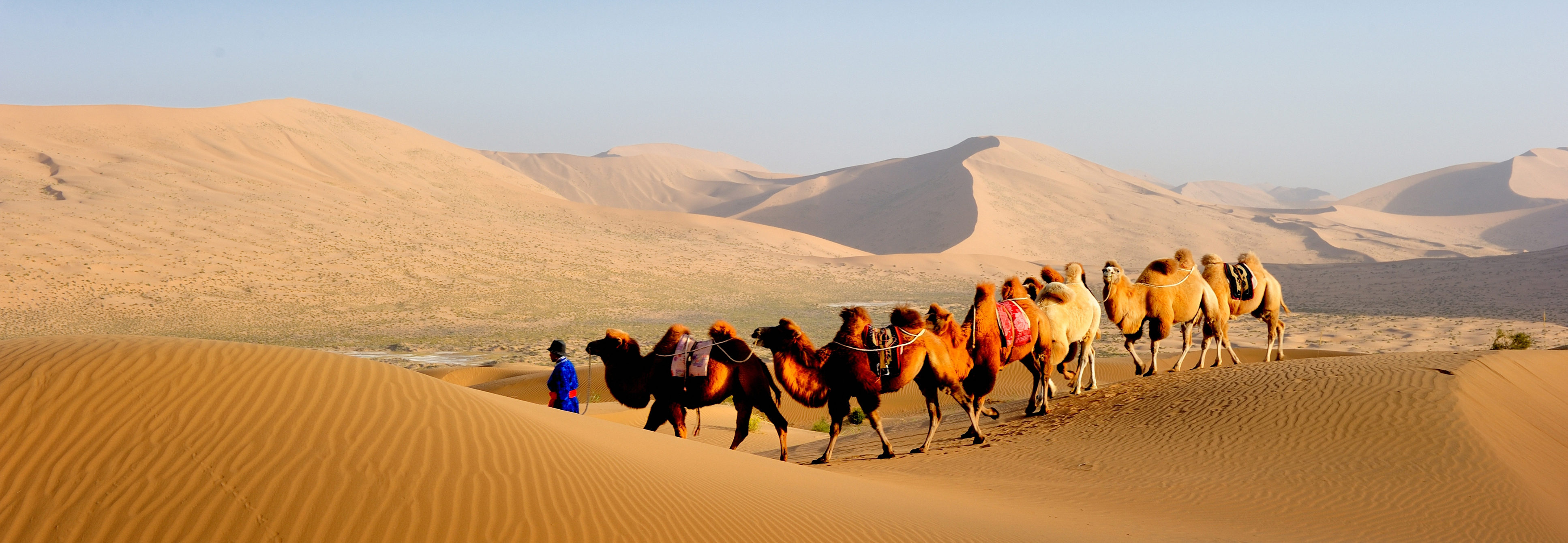2018-04-16
1. MEP Minister Li Ganjie meets the press: fighting pollution by continuing to take measures
On the afternoon of March 17, MEP Minister Li Ganjie answered reporters’ questions concerning the battle of controlling pollution, during the first session of the 13th National People 's Congress.
The following nine key sentences of Minister Li impress people and we share them with you. The first key sentence:
Since the 18th CPC National Congress, in order to prevent and control pollution, the central government has formulated three action plans, known as the three “ten measures”. Over the past five years, practice has fully proved that the direction, path, measures, objectives and tasks of the three “ten measures” are reasonable and science-based, producing more effective results.
For the next three years, the key to combating pollution is to adhere to the path we have followed in the past five years that has been proved to be right and effective although it involves some cost. All proven measures will continue as long as they are effective.
——MEP Minister Li Ganjie
March 17, 2018
2. MEE serving as a regulator needs to consolidate the duties in five aspects.
The second key sentence:
This reform, I believe, embodies the important strategic thought of General Secretary Xi Jinping on the ecological conservation, by which we need to consolidate the duties regarding mountain, water, forest, farmland, lake, and grass. We also need to separate regulators and owners. They should be independent of each other, cooperate with each other, and supervise each other.
From the perspective of owners, their duties have been integrated. Serving as a regulator, the MEE has combined the decentralized duties of controlling the pollution and protecting the environment in five aspects: above ground and underground; onshore and in water; land and sea; urban and rural areas; carbon monoxide and carbon dioxide, which means that we have consolidated the duties regarding air pollution prevention and control and climate change mitigation and adaptation.
3. Inspectors from the central government must go after the culprits of environmental damages, regardless of where the investigation leads.
The third key sentence:
The central government’s inspection on environmental protection accountability is a major institutional reform in the ecological conservation, one reform advocated by General Secretary Xi Jinping. It is carried out under the guidance and leadership of General Secretary Xi. Therefore, the system is designed to make sure that all culprits causing environmental damages will be investigated and punished regardless of who they are and where they are.
The inspection, as some people conclude, is solving the problems and winning the people’s applause, the central government’s affirmation, and local support. It is an effective measure that we must carry forward. The newly-formed MEE needs to carry out the central government’s inspection on environmental protection. Recently, we have been considering how the central government’s inspection on environmental protection accountability will be implemented from this year on. I believe that, with our joint efforts, this good inspection mechanism will certainly play a greater role.
4. Air pollution control calls for strong commitment and long-term hard work.
The fourth key sentence:
The Action Plan on Air Pollution Prevention and Control, also known as “ten measures for air”, is a very important document in China’s history of environmental protection. It is also the first important document approved by the Standing Committee of the Political Bureau of the CPC Central Committee and the Executive Meeting of the State Council. It is the first action plan for the central government to resolutely declare war on pollution and carry out systemic control of pollution.
Over the past five years, we have seen tangible benefits. However, we have no reason to be self-complacent because the situation we are facing is very serious and we still have a long way to go. In other words, the battle of tackling air pollution is a long-term one because pollution has been accumulated over many years. As such, we cannot get it done once and for good, and we must double our efforts to combat the pollution. Our goal can and will be achieved as long as we persevere in our hard work.
5. Practice has proved that the current environmental protection law is the strictest one in China’s history after it came into force three years ago.
The fifth key sentence:
The new environmental protection law, known as the strictest one, has proved that it is indeed the most stringent environmental protection law after it has been implemented over more than three years. The third-party independent assessment agency finds that, seen from the history of environmental protection, this law is one of the best laws in terms of enforcement, compliance, and impacts.
The quality of the environment will be improved greatly, provided enterprises carry out law-abiding operations and comply with discharge standards, and local governments fulfill their commitments and put in place their plans. We still have a lot of things to be done. In accordance with the requirements of taking a strict, standard well-targeted approach to performing law enforcement in a civilized way, we will further implement the new Environmental Protection Law and other laws. Let the laws underpin the improvement of the environmental quality.
6. We need to make our waters clear again.
The sixth key sentence:
We face a daunting task of tackling the air and water pollution. When defending our blue skies, we also need to win the battle of cleaning and protecting our waters. We must do a good job in the prevention and control of water pollution by taking “two measures” to clean “four types of water bodies”, accelerating “four renovations”, and strengthening “four supports”, so as to achieve “one goal”.
“One goal”: to improve the quality of water environment
“Two measures”: to reduce pollutant emissions and the total amount of pollutants; to protect and restore water ecosystem and enhance its capacity of acceptance and purification
“Four types of water bodies”: centralized drinking water sources (it is the top priority in meeting the demand of the public for drinkable water); black and malodorous water bodies; inferior water bodies of Grade V; substandard waste water bodies discharged into rivers, lakes, and seas
“Four renovations”: to protect and restore industrial park, living source, rural non-point source, and water ecosystems
“Four supports”: law enforcement and inspection; coordination between different basins (upstream and downstream; left and right banks); science and technology; publicity and guidance
7. It is the right of the Chinese government to restrict and prohibit the import of solid wastes.
The seventh key sentence:
Restricting and prohibiting the import of solid waste represents an important move made by the Chinese government to implement the new development concept, improve the quality of the environment, and ensure the national ecological security and the health of the people. Also, it is also a right enjoyed by the Chinese government.
All countries have the right and the duty to prohibit the entry of foreign hazardous wastes and other wastes into their own territory, as specified in the Basel Convention.
Now the most important thing is that, following the spirit of the Basel Convention, all countries need to reduce and process their own wastes. With this consensus, a lot of things will be better understood and solved, which is conducive to building a clean and beautiful world.
8. We must embark on the path of green development if we want to make substantial and steady progress in implementing the B and R Initiative.
The eighth key sentence:
General Secretary Xi Jinping calls for working together to build a community with a shared future for mankind, to build an open, inclusive, clean, and beautiful world that enjoys lasting peace, universal security, and common prosperity, and to become good friends to the environment and protect our planet for the sake of human survival. There is no doubt that, in the implementation of the Belt and Road Initiative, we will conscientiously practice these ideas and requirements put forward by General Secretary Xi Jinping. In fact, we must embark on the path of green development if we want to make substantial and steady progress in implementing the B and R Initiative.
In the following step, we must focus on the two things presented by General Secretary Xi: the big data service platform of eco-environmental protection for the B and R Initiative; the international alliance for the green development of the B and R Initiative. Let everybody share the results of the green development of the B and R Initiative.
9. As nature reserves are our lifeblood, we must protect them in a sustainable way.
The ninth key sentence:
We have learned the Circular on Supervision and Handling of Environmental Protection in Qilian Mountains National Nature Reserve in Gansu Province and its Lessons. The Circular issued by the General Office of the CPC Central Committee and General Office of the State Council is of great, landmark significance in the history of China 's eco-environmental protection. It is unprecedented for China to give such priority to the environmental protection, impose such punishment on relevant persons in charge of the ecological damage, and expand a strong influence across the country.
After the Circular was issued, we have immediately worked with other departments to launch the “Green Shield 2017” program for supervision and inspection of national nature reserves. After 446 national nature reserves were investigated, 20,800 problems were identified, 2,460 enterprises were closed down, and more than 1,100 people were held accountable. The most important thing is to repeal and amend local laws and regulations inconsistent with the upper law, yielding good results.
Natural reserves are the precious wealth for the sustainable development of the Chinese nation, deserving our protection. We all have the responsibility to protect this valuable wealth as our lifeblood in a sustainable manner.
Source: the Ministry of Ecology and Environment




